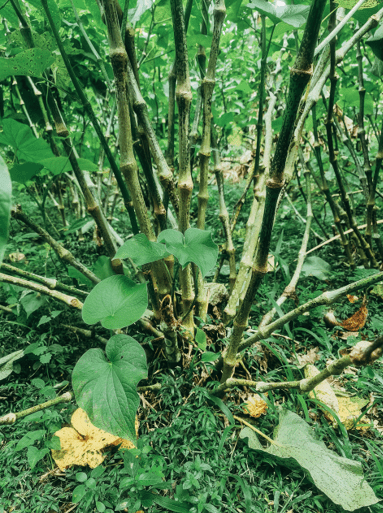IS KAVA SAFE TO DRINK?
Kava comes from the plant named ‘Piper methysticum’, which translates to ‘intoxicating pepper’. This is because the kava plant resides in the same family as the black pepper plant. It has been used in the Pacific Islands for centuries for its calming and therapeutic effects. Kava an herb that has been ceremonially utilized in the Pacific Islands for an extended period. The customary beverage was crafted by pounding dry kava root, and brewing in a muslin cloth in cold water. Ingesting kava generally induces a unique sense of relaxation without causing any bad side effects. In the South Pacific, it enjoys popularity as a beverage utilized in ceremonial contexts, as well as drinking kava in the evenings to unwind for its relaxation properties. Kava is frequently employed by individuals to alleviate anxiety, address stress, manage withdrawal symptoms from benzodiazepines, tackle sleep-related issues, and for various other purposes.
Well, the question is: is kava safe to drink?
In brief, kava, when prepared or extracted exclusively from the medium grind root from a good source vendor like Fiji Vanua Kava and drank correctly the traditional way, has demonstrated itself to be a highly safe herbal supplement. People in the islands have been consuming this root for decades without encountering any issues, such as liver toxicity.
Well, why does the Liver toxicity claims come up when one web searches kavas safety?
In a more detailed explanation, despite substantial evidence supporting the safe use of appropriately consumed kava without causing liver damage—underscored by millennia of uneventful kava use in the South Pacific—certain questionable case studies from a limited area in Europe were presented to assert the harmful effects of kava on the liver. Subsequent research exposed a critical error in these case studies, as the majority of the cited instances involved individuals who had concurrently used kava with alcohol or benzodiazepine drugs. Additionally, some cases involved the consumption of kava preparations containing toxic kava extract products made from non-noble kava and study participants given parts of the stems and leaves of the kava plant not meant for human consumption.
“We at Fiji Vanua Kava support the views of Dr. Andrew Weil, M.D., a 10-time New York Times bestselling author, Harvard Medical School graduate, Founder and Director of the Andrew Weil Center for Integrative Medicine at the University of Arizona, and Founder of True Food Kitchen Restaurant. We believe that the misconception linking Kava to liver disease should be dispelled.”
Secondly, “The CODEX Alimentarius Commission, during its 40th Session held in Geneva, Switzerland, has approved the formulation of a regional standard for kava as a water-mixed beverage.” “The Codex Alimentarius released the ‘Regional Standard for Kava Products Intended for Use as a Beverage When Mixed with Water’ on February 15, 2022.”
Thirdly, Confirming Kava’s Safety and Lack of Association with Liver Damage Through rigorous examination, including the critical assessment of WHO’s findings on Kava safety, insights from indigenous practices in Fiji, and personal testimonies, the team at Fiji Vanua Kava believe that the safety of kava emerges as an undeniable fact.
At Fiji Vanua Kava, we believe kava is not just a beverage but a social ritual, an integral part of the local culture and traditions. Yet, despite its deep roots and widespread consumption, Kava has been clouded by a lingering myth that has caused undue concern and fear: the false notion that Kava consumption leads to liver damage.


